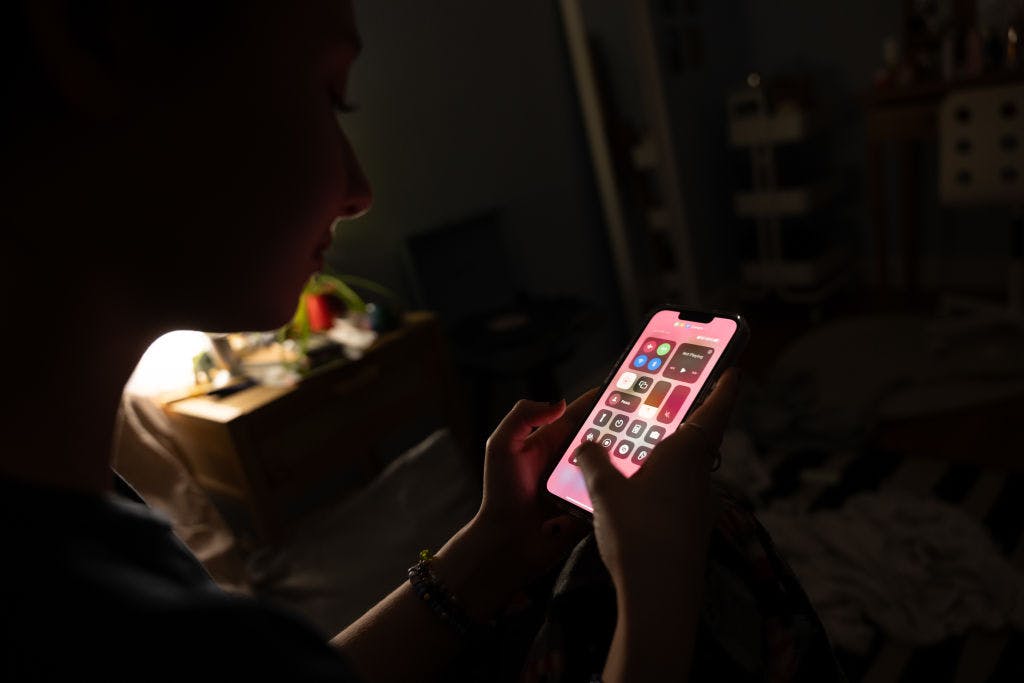To Raise Less Anxious Children, Give Them More Freedom, and Less Screen Time
Phones and social media present a can of worms the size of Wichita. No one denies it.

In a blockbuster Atlantic piece, “The Terrible Costs of a Phone-Based Childhood,” my Let Grow co-founder Jonathan Haidt says our culture is getting it all wrong when it comes to children: We “underprotect” them in the virtual world and overprotect them in the real one.
That’s the worst of both worlds if we want to raise healthy, happy children.
The piece focuses heavily on how smartphones, introduced about 15 years ago, have “re-wired” childhood. They did this in part by throwing children — and the rest of us — into a maelstrom of “likes,” comparisons, and misinformation.
Yet phones also warped childhood by siphoning off the time children would otherwise spend in the real world, running around, playing, flirting, exploring, and even sleeping. These are things children need but aren’t getting enough of.
Mr. Haidt quotes Henry David Thoreau who memorably said about cell phones — well, about time, attention, money, love, and action — that “The cost of a thing is the amount of … life which is required to be exchanged for it, immediately or in the long run.”
Whether it’s on a smartphone, or in an extracurricular where adults run the show, or in an SUV on the way to that orchestrated event — with no time for free play and autonomy, children are paying for their childhood with passivity.
Result? A generation of young people ever more depressed, anxious, and harming themselves, Mr. Haidt says. And he’s got lots of graphs to prove it.
Only Mr. Haidt doesn’t just despair. He proposes four solutions. Three are about phones:
1 — Get them out of the schools, all day.
2 — Don’t let children have a smartphone till age 14.
3 — Keep everyone off social media till age 16.
His fourth and final plea?
4 — Give children back some independence and free play.
To do that, he says, schools and parents should look to the organizations working to promote a more play-filled, independence-building childhood. Specifically:
“One that I co-founded, at LetGrow.org, suggests a variety of simple (free) programs for parents or schools, such as play club (schools keep the playground open at least one day a week before or after school, and kids sign up for phone-free, mixed-age, unstructured play as a regular weekly activity) and the Let Grow Experience (a series of homework assignments in which students — with their parents’ consent — choose something to do on their own that they’ve never done before, such as walk the dog, climb a tree, walk to a store, or cook dinner).”
Let Grow’s ideas work for individuals as well as schools. Our at-home version of The Let Grow Experience lists even more real-world things children could try:
Eat a meal outside, go to the post office, do the laundry, take care of someone younger, make something, bake something, wash something, paint something or just go outside and come back in an hour. Really — our culture has almost forgotten our children are human. There’s plenty they are built to do, no matter the child or the neighborhood.
Phones and social media present a can of worms the size of Wichita. No one denies it. Only children were drooping even before the first iPhone as they spent less and less time having adventures, helping their parents, playing with friends, and roaming around. To raise a less Anxious Generation, writes Mr. Haidt:
“It would be a mistake to overlook this fourth norm. If parents don’t replace screen time with real-world experiences involving friends and independent activity, then banning devices will feel like deprivation, not the opening up of a world of opportunities.”
To open the world, just open the door. Tell the children to be home by supper.
Creators.com

